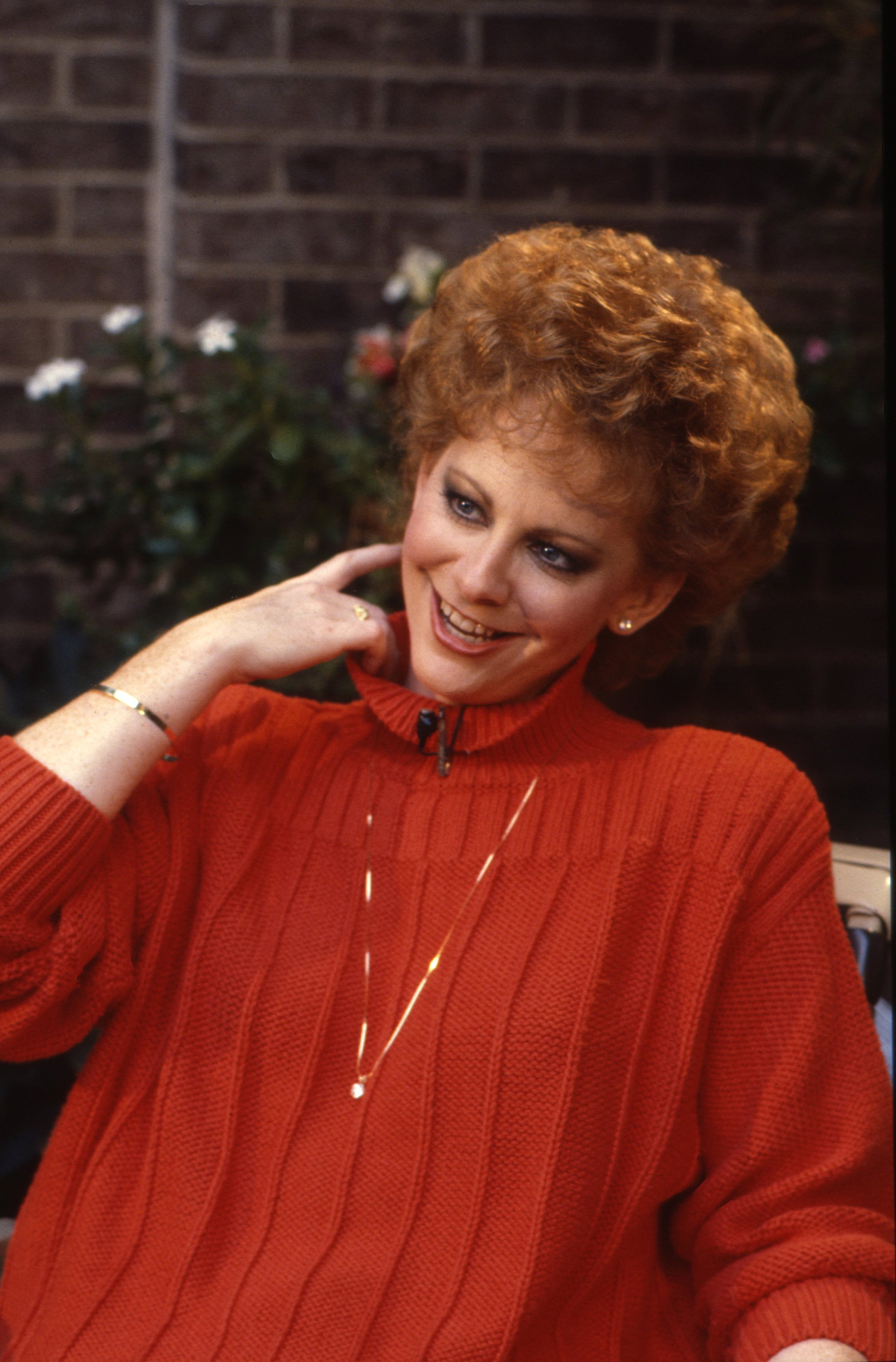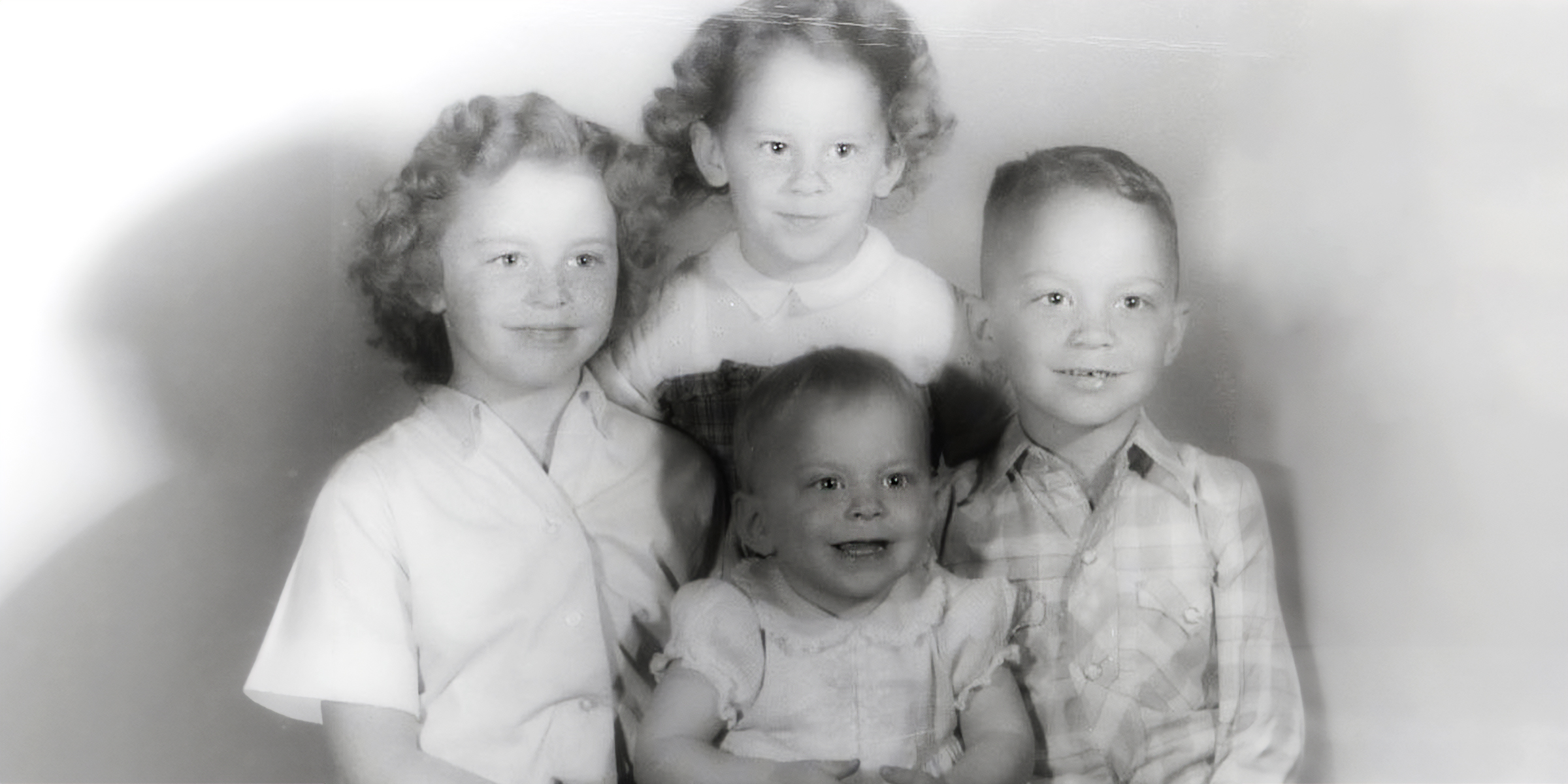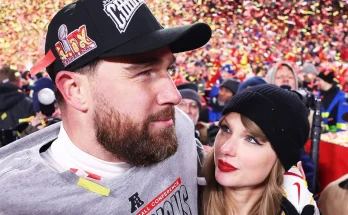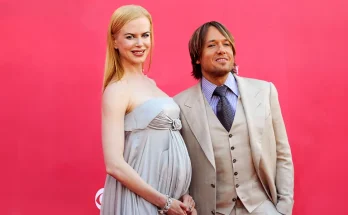Life on a ranch was no place for idleness, especially for one of four siblings raised in a tight-knit family where hard work was non-negotiable. By the time she was five, she was helping drive her father’s truck through fields of cattle, her small frame barely able to see over the dashboard.
Her father instilled discipline and grit in his children. Her mother, a dreamer with a love for country music, filled the home with encouragement and warmth. Life on the ranch was as rugged as it was rewarding. For this girl, the ranch was where she learned to lead, persevere, and, eventually, dream of something more.
Long before she was a star, she was a ranch hand. Growing up on an 8,000-acre ranch in Chockie, Oklahoma, she learned to work with her hands and heart. Her father, Clark McEntire, was a champion steer roper, and her mother, Jackie, was a homemaker with a love for music.
Together, they raised four children — Alice, Pake, Reba, and Susie — in a small gray house with a single bathroom for all six family members. From the age of five, she was behind the wheel of a pickup truck.
Too small to reach the pedals, her father would prop her up with a 50-pound feed sack and place the truck in “granny gear,” letting her steer. This wasn’t a one-time event but part of her daily life.
With her siblings by her side, she helped care for the cattle, guided the horses, and managed the workload of the ranch. Their only company during those long days was each other.
Her father wasn’t one to give out hugs or words of praise. His love came in the form of expectations. Her mother filled the emotional gap, offering love, guidance, and, most of all, encouragement.
With her father often away competing in rodeos, the kids were left to run the ranch. It was during these moments that she learned the value of teamwork, grit, and independence — qualities that would serve her well later in life.
From Ranch Hand to Rising Star
Life on the ranch taught her how to work, but music taught her how to dream. While her father built a legacy in rodeo, her mother carried her dream of becoming a country singer. Though Jackie never got her big break, she planted that dream in her children.
The three youngest McEntires — Pake, Reba, and Susie — formed a group called “The Singing McEntires,” performing at rodeos, local events, and family gatherings. Music became an outlet for her and a chance to stand out.
She played the guitar, learned the piano, and discovered the joy of receiving applause. Each performance was an opportunity to earn her mother’s approval. “That was real good,” her mother would say, and those words stuck with her.
Later, she attended Southeastern Oklahoma State University, where she initially majored in music. However, the technicalities of the program proved too challenging, so she shifted her focus to education, with music as her minor.
She thought she might one day become a teacher. However, fate had other plans. One fateful day at a rodeo, her big break finally arrived.
In 1974, she was invited to sing “The Star-Spangled Banner” at the National Finals Rodeo in Oklahoma City. For most, it would have been a small gig, but that performance caught the attention of country music star Red Steagall.
Blown away by her voice, Steagall struck up a conversation with her family. Her mother saw an opportunity and seized it. “Can you get the kids in the business?” she asked him. Her older brother and younger sister decided not to pursue it, but she was ready.
The following year, in 1975, she accompanied Red Steagall to Nashville to record a demo tape. It was her first real introduction to the world of music production.
Glenn Keener, an executive at PolyGram Records, heard the tape and took it to his bosses. They had two reels in front of them — hers and another singer’s. They chose hers, and just like that, she had a record deal.
But the road ahead wasn’t smooth. Her first few releases didn’t gain traction, and life as a new artist in Nashville wasn’t the glamorous dream she’d imagined. It would be years before her hard work paid off, but she knew how to wait. She’d learned that lesson on the ranch.
Reba McEntire poses for a portrait session in Nashville, Tennessee in circa 1976 | Source: Getty Images
Her music career officially began in 1976, but it wasn’t until 1983 that she scored her first No. 1 hit with “Can’t Even Get the Blues.” It was a long-awaited moment. While on tour, she received a call from her manager, Don Williams, who told her the big news.
Her first call was to her mother, Jackie. “Well, you finally did it,” Jackie said. “No, ma’am,” she replied. “We did it.” Though she was gaining fame, the financial rewards were slow to come.
She didn’t see her first royalty check until 1988, years after she had already won four CMA Female Vocalist of the Year awards. Her success skyrocketed as she became one of the most celebrated female artists in country music history.
With 24 No. 1 hits and over 90 million records sold, she claimed her spot as the second-best-selling female country artist of all time. The name Reba McEntire and its influence soon stretched beyond music.
Reba McEntire speaks onstage during the The 54th Annual CMA Awards at Nashville’s Music City Center | Source: Getty Images
Reba wowed audiences on Broadway in “Annie Get Your Gun” and made her mark on television with the hit sitcom “Reba,” which earned her a Golden Globe nomination.
From music star to TV star, she proved she could thrive in any arena. Through it all, she remained grounded, giving credit to her parents and the small-town values she learned in Oklahoma.
Reba’s father was known for his toughness, and he wasn’t one to offer words of affection often. However, there were rare moments when he’d let his pride for his daughter show. After one of her performances, he told her, “Reba, you sure do work hard.”
Another memorable moment was after she won Entertainer of the Year at the CMAs. As she sat in a limousine with her parents, her father said, “It’s always good to drive home with a winner.” Coming from a three-time world champion steer roper, that was one of the highest compliments he could give.
Reba McEntire receives a Music City News Award on January 9, 1987 | Source: Getty Images
Sadly, he passed away in 2014 following complications from a stroke, and his death deeply affected her. Reflecting on his life and legacy, she honored him with the music video for “Just Like Them Horses,” a song that offered an intimate look at her grief.
Just six years later, in 2020, she suffered another devastating loss when her mother, Jackie, passed away after battling cancer. Her death left a lasting void in Reba’s life, and she wasn’t sure if she could continue singing without her.
Reba McEntire performs onstage during the 54th Academy Of Country Music Awards at MGM Grand Garden Arena on April 7, 2019 | Source: Getty Images
However, she found solace in remembering Jackie’s influence on her career. “Mama was my cheerleader,” she once said. “She encouraged me. I miss her so much.”
Reba McEntire attends the 54th annual CMA Awards at the Music City Center on November 11, 2020 | Source: Getty Images
Throughout her life, Reba has faced her share of heartbreak, but no loss hit harder than the tragedy of March 1991. While at home with her then-husband, Narvel Blackstock, she received news that would forever change her life.
A plane carrying seven members of her band and her tour manager had crashed near San Diego, California. There were no survivors. The devastation was unimaginable, as she had just been with them hours earlier. The tragedy robbed her of cherished friends and trusted collaborators.
Grief gripped her, but she didn’t let it consume her. Instead of pausing her career, she poured her pain into her next album. Her bassist, Leland Sklar, asked if the project would include any happy songs.
Her reply was, “Not on this one.” The resulting album was raw and emotional, reflecting her grief and the process of healing. In the aftermath, she leaned on her faith, family, and the values instilled in her by her parents.
These guiding principles had always been her foundation, and now they helped her endure one of the darkest moments of her life. Her faith had been a constant presence in her life, thanks to the influence of her maternal grandmother, Reba Smith.
Her grandmother taught her about Jesus and instilled in her a deep sense of spirituality. It’s a lesson that stayed with her through every season of her life, from her early days on the ranch to her rise as a country music superstar.
Faith wasn’t just a belief system but a source of strength, a reminder that she was never truly alone, even in times of profound loss. Her mother, Jackie, also played a significant role in shaping her character. Jackie believed in accountability, loyalty, and always following through on promises.
Her love life has seen its own share of heartbreak. Her 26-year marriage to her manager, Narvel, ended in divorce. It was a public split, and Reba later admitted that divorce doesn’t just affect two people — it affects the entire family.
For a woman who had weathered so many storms, this one still took a toll. But, like every other challenge in her life, she found her way forward. She eventually found love again with actor Rex Linn, and the couple has been open about their happiness.
Splitting their time between Nashville and Los Angeles, Reba says she feels secure and at peace in this new chapter of her life. Through every tragedy and every triumph, Reba’s music has remained a reflection of her life’s journey.
Her ability to channel heartache into art is one of the reasons she has become a beloved figure in country music. Her songs speak to the pain and perseverance of ordinary people. It’s this relatability that has kept her at the top of the charts for more than four decades.
With 24 No. 1 hits, more than 90 million records sold, and countless awards to her name, Reba is undeniably one of the most successful female country artists of all time. Her career has transcended music, reaching into television, Broadway, and even the restaurant business.
Reba divides her time between Nashville and Los Angeles, often staying with her boyfriend Rex in L.A. Despite her success, she remains deeply connected to her Oklahoma roots.
In 2023, she invested in her hometown of Atoka County by opening Reba’s Place, a restaurant that stands as a tribute to her humble beginnings. With her legacy cemented, Reba McEntire’s story serves as a reminder that with faith, family, and grit, no dream is too big.








